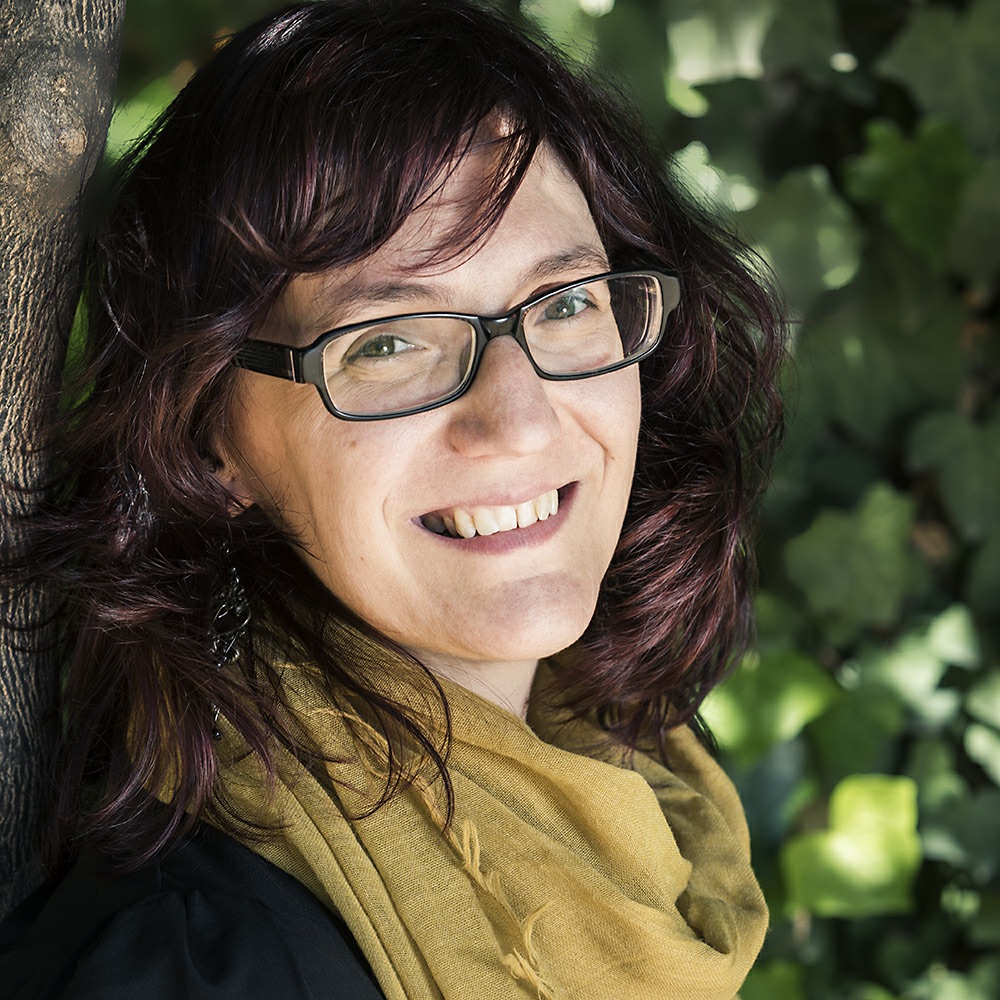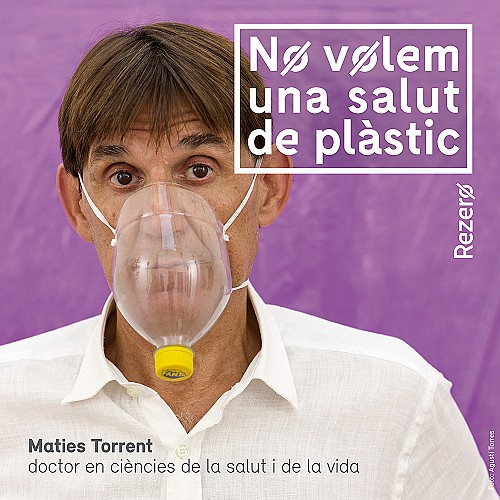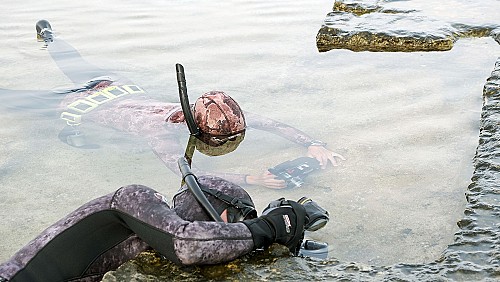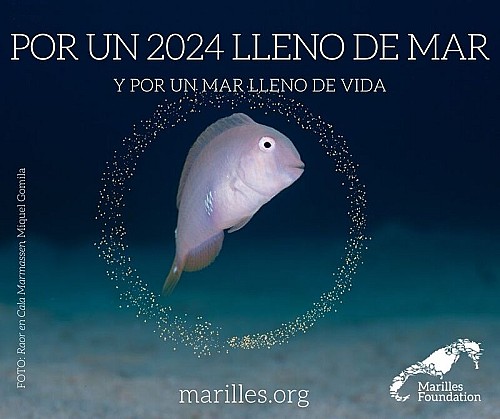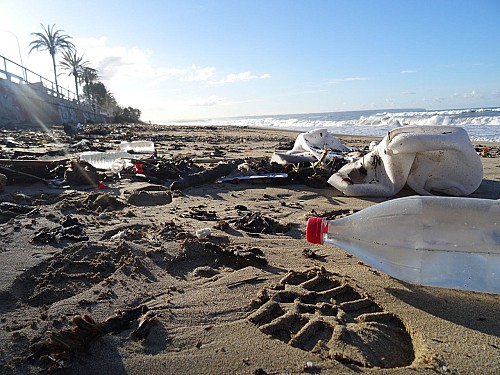Related project
Rezero is a non-profit organization that wants to change the model of production and consumption to achieve zero waste. It promotes transformative actions and policies for waste prevention and works in a network with social and economic agents. We spoke with Rosa García, director of Rezero.
How has Rezero participated in the new waste law of the Balearic Islands approved at the end of January?
Rezero wants to contribute to achieving a zero waste society. This implies a profound change in the production and consumption model that will be difficult to achieve without a new regulatory framework that emphasizes waste prevention and extended producer responsibility.
The overexploitation of natural resources -Baleares has the highest rate of waste production in the State -800 kg per inhabitant per year-, the existence of collapsed management plants and the environmental, economic and social impact of these wastes required a waste law that, in line with that already established by the European Union, paved the way towards zero waste.
In this sense, our entity has worked in recent years for:
1. Visualize the impact of the current model of production and consumption with actions of awareness, debate and reflection.
2. Weave complicity with environmental, social and economic entities and institutions to work together in favour of a pioneering and courageous law.
3. Be proactive in proposing measures.
We consider that the Balearic Waste Law is a great exercise of responsibility towards the territory and future generations on the part of all the actors that have participated, the Government and the parliamentary groups. We also consider that the benefits of this law transcend the islands and that it will serve as a guide for many other territories.
What is the role of companies and producers in the reduction and prevention of waste?
One of Rezero's main values is shared responsibility. All social and economic agents have it in our hands to put an end to the unsustainable generation of waste, but not all of us have the same level of responsibility: companies and producers have to be at the forefront of transformation. In the first place, ensuring that everything put on the market generates as little waste as possible and is repairable, reusable and at the end of its useful life recyclable or compostable. This implies re-pen-sar production processes with criteria of prevention and eco-design. Likewise, the sector must begin to assume the extended responsibility of the producer, that is, to assume 100% of the economic costs of its products when they become waste and stop outsourcing their environmental and social impacts.
These are Rezero's tips for preventing the generation of waste and plastic:
The 12 things I can do on the way to the #zerowaste
1. Reject unnecessary material objects which can't be recycled.
2. Plan your purchase.
3. Buy in bulk. Use baskets and lunch boxes.
4. Avoid briks, cans and plàstic.
5. Remove kitchen paper, clear film and aluminium foil.
6. Eliminate single-use coffee capsules and wàter packaged.
7. Separate and/or compost the organic matter.
8. Remove wipes and the ear sticks.
9. Opting for bars of soap without toxics or wrappers.
10. Wear diapers.
11. Choose the menstrual cup and/or reusable cloth compresses and pantyliners.
12. Use cleaning natural products: vinegar, lemon and bicarbonate, toxic free.
Where, when and how was Rezero born?
Rezero was born 15 years ago in Catalonia. At that time there was a lot of talk about "The 3 Rs". The first R, that of reduction, was simply discursive. For this reason, the Centre for Ecology and Alternative Projects -CEPA- and the Federation of Ecologists of Catalonia decided to create an entity focused on waste prevention and which, in addition, would bring together all the sectors involved in the generation of waste (administrations, businesses, businesses, universities and citizens). Networking is one of the fundamental principles of our entity. It is present both in our Board of Trustees and our Participation Council -where all our members participate- and in the planning of each of our campaigns and initiatives.
Since when do you also work in the Balearic Islands?
More than 10 years ago, Rezero began to collaborate with entities such as GOB, Fundació Deixalles, Friends of the Earth and Alcaib in the creation of what we then called the Platform for Waste Reduction. At that time, in the Balearic government, Da-vid Abril de Mes per Mallorca promoted an initial proposal for a Waste Law. From the platform we organized a series of talks and activities to visualize the need for this law and a change of model in waste management to the islands. Already in this last le-gislature, the initial platform has evolved towards the Platform for a Sea without Plasti-co with the incorporation of more environmental, social and economic entities and has intensified the demand for this new regulatory framework.
What are you working on right now in the Balearics?
The approval of the waste law is an important milestone but it is only the starting point for the transformation of society towards zero waste. We know that certain economic interests have pressured to reduce the ambition of this law and we understand that its future task will pass to prevent its deployment. Entities such as Rezero will continue to work to visualize the need and suitability of this law, denouncing possible interference and being proactive in demanding the development of measures and actions contemplated in the regulations. Among the various actions that we will develop over the next few months, we would like to highlight the backbone of the Pact for Reuse, a collective collaboration agreement (producers, packagers, distributors, points of sale, administration and civil society) with which, in the beverage sectors alone, the generation of 30,000 tonnes of waste per year could be avoided.
Quick test for enthusiasts
A book: Buena crisis, by the philosopher Jordi Pigem.
An image: to feel salty skin.
A marine species: posidonia.
A reference organisation or person: Zero Waste Europe.
A beach: Migjorn (Formentera).
A phrase that defines you: The path is easy if you do it willingly.
Optimistic, realistic or pessimistic? Optimistic.

